Ten Iranian border guards killed in restive southeast
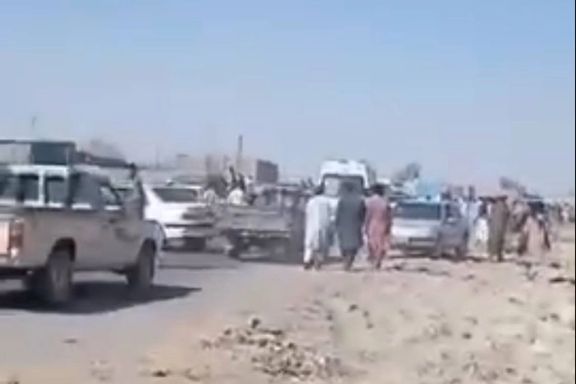
Ten Iranian border guards were killed in an attack in the restive Sistan-Baluchestan province on Saturday, according to an Interior Ministry statement on X.

Ten Iranian border guards were killed in an attack in the restive Sistan-Baluchestan province on Saturday, according to an Interior Ministry statement on X.
"Following the martyrdom of 10 border guards on the Goharkouh road in Taftan County, the Minister of Interior promptly assigned a team of police commanders and Ministry of Interior officials to investigate the details of this incident," the statement added.
The insurgent Sunni Baloch group Jaish al-Adl claimed responsibility for the attack.
Iran's Sistan-Baluchestan province has been the site of numerous attacks attributed to Jaish al-Adl, a group known for its history of ambushes, bombings, and other violent operations, resulting in the deaths of both civilians and security personnel.
Jaish al-Adl advocates for an independent Balochistan that encompasses Baloch populations on both sides of the Iran-Pakistan border. The group has conducted numerous significant operations in Iran's southeastern region.
In June, Jaish al-Adl announced the identification and apprehension of nine key members of a "terrorist and espionage" network associated with the Revolutionary Guards, comprising Iranian and Pakistani nationals as well as former members of the Afghan government's armed forces.
One of the most intense confrontations between the group and Iranian border forces occurred in April when Jaish al-Adl launched simultaneous attacks on five public locations, as well as military and law enforcement bases in Chabahar and Rask.
The Baloch community, alongside the Kurds, has long been one of the most persecuted minorities in Iran. The region is among the country’s most impoverished, characterized by high unemployment rates and inadequate infrastructure. As a result, many residents have turned to smuggling fuel, goods, and, in some cases, drugs as a vital means of survival.
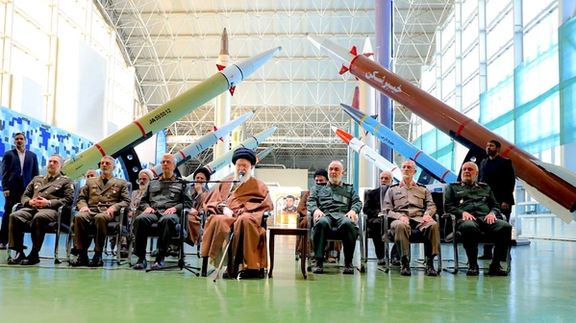
While the Islamic Republic’s establishment downplays Israel’s air strikes as ineffective and praises Iran’s air defenses, many hardliners are pushing for a retaliatory response—one that risks triggering further reciprocal attacks.
Details of the Israeli attack are still unclear. The only certainty is that the air strikes targeted air defense systems and missile production facilities, but exactly how many targets were hit and what the damage was, has not yet been disclosed.
What are Iran's options for retaliation, despite its earlier stance suggesting it might forgo a response to a limited Israeli attack to avoid prolonging the cycle of counterattacks? Iran has already launched hundreds of ballistic missiles at Israel twice this year, causing minimal damage. With no effective air force, Iran’s retaliatory capabilities are largely confined to a few types of medium-range ballistic missiles, whose accuracy remains uncertain.
Both Israel and the United States have warned Tehran not to respond to this attack. “We urge Iran to cease its attacks on Israel so that this cycle of fighting can end without further escalation,” US National Security Council spokesman Sean Savett told reporters. The US has boosted its forces in the region with the aim of deterring further Iranian attacks, especially against its Arab allies around the Persian Gulf.
Iran has around 3,000 missiles available for more attacks against Israel, but it is not so much an issue of weapons availability, as much as an issue of more Israeli counterstrikes, while Iran’s skies apparently remain defenseless. There are no reports of Iranian air defenses intercepting even one Israeli missile on October 26. There are also no reports of any fighter jets being scrambled to face Israeli planes, which probably fired their ordinance from Iraqi airspace.
This means that if Iran decides to launch another round of missiles, Israel could counterstrike by targeting assets that would significantly impact Iran's Islamic government—particularly its economic infrastructure. One major point of weakness is oil refineries that produce for the domestic market. Iran has two large refineries and even if one of them is damaged, the country would face serious problems at the onset of winter. This approach would avoid impacting global oil prices, allowing Israel to sidestep potential backlash from the US, which has advised against targeting Iran's oil production and export facilities.
In recent past, Iran’s rulers could count on their well-armed proxies, such as the Lebanese Hezbollah, to play the role of a deterrent against Israel. However, after Israeli operations that became intense in recent months, both Hezbollah and Hamas have been significantly weakened. Despite Israel’s relentless bombardment of targets in Lebanon, Hezbollah has not been able to launch tens of thousands of rockets that many feared could overwhelm air defenses.
As a result, Iran’s longstanding strategy of confronting Israel through proxies abroad appears to have faltered, with hostilities now reaching its own soil. A single major Israeli airstrike on critical economic targets could pose serious threats to the Islamic government, already grappling with multiple economic crises. An impoverished population—hard-hit over the past five years and shown to be ready to protest—may not tolerate another severe decline in living conditions.
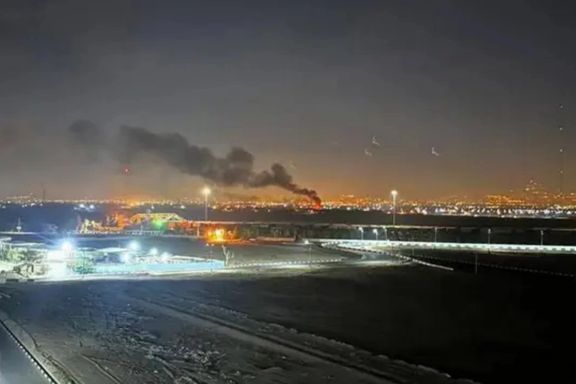
Ultra-hardliner loyalists of the establishment in Iran are demanding a quick response to Israeli air strikes Saturday, but many others are cautioning about further escalation and want an end to the conflict.
Iran’s Ministry of Foreign Affairs said in a statement Saturday that the Islamic Republic is "entitled and obligated to defend against foreign aggressive actions, based on the inherent right of self-defense” and that “It highlights the individual and collective responsibility of all countries in the region to safeguard peace and stability.”
“Zionists must receive a response right now even if they managed to land one American missile in Iran, even in an insignificant location. Speediness of Iran's reaction is a component of our strength and will cause disruption to the possible continuation of the attacks,” Abdollah Ganji, the former editor of the IRGC-linked Javan newspaper tweeted after the third wave of attacks.
“Why are you so eager to involve Iran in war? War will bring nothing other than destruction to you”, one response said. “Israel will respond again and so will Iran. How long should the cycle of retaliatory attacks continue?” Another message to Ganji said, “Don’t talk nonsense, those above you made a deal behind the scenes before [the attack to not respond]”.
“Sustainable security depends on [show of] strength and strong response to the enemy’s smallest blunder,” ultra-hardliner lawmaker Amir-Hossein Sabeti tweeted. “Violation of Iran's red line and invasion of the country’s territory must be answered at a surprising level to them. The best time for responding is when they are busy in a war of attrition in Gaza and Beirut,” he contended.
Most of the comments to his post disapproved of his call to continue the conflict. “Direct conflict with Israel will only expedite the Islamic Republic’s downfall from within”, one of the comments said.
Unlike Ganji and Sabeti, some politicians appeared to be advising an end to the conflict.
“Politically analyzed, [the limited scope/impact of] the attack means Washington and Tel Aviv are seeking deterrence and the end of the revenge cycle of war,” a former head of the Iranian parliament's National Security Committee, Heshmatollah Falahatpisheh, tweeted. “Both war and diplomacy can be limited to Gaza and Lebanon now,” he added.
“The cycle [of revenge] will end when the child-killing Zionist regime is destroyed,” one of the comments to Falahatpisheh’s post read.
Many social media users contended in their posts that the Islamic Republic will downplay the impact of the Israeli air strikes even if important targets were destroyed while others warned against an Iranian response.
Esmail, a social media activist who describes himself as a barandaz (one who wants to overthrow the Islamic Republic), argued in his tweet that Iran is preparing the public opinion for not responding to Israel’s attack because all news channels of the state broadcaster are downplaying its impact.
“This means denial and preparation of [people’s] minds for not responding is on the agenda if … the level of [the impact] of the attack remains the same [as it appears now]. Israel is happy, the US is happy, the IRGC is happy [too]...,” he wrote.
“Netanyahu and his friends still have the upper hand. It is enough to publish images of the impact on the targets if they intend to [continue the] conflict but the Islamic Republic will declare victory with extensive propaganda if images are not released,” another post on X read.
Another netizen opined in a tweet that it will become clear if the Islamic Republic’s propaganda on the low impact/damage of the attack could work or not when more information becomes available. “Everything is ambiguous so far but apparently the dollar rate has gone down,” he wrote.
Iran's currency, the rial, regained some of its losses after the Israeli air strikes. The rial had fallen nearly 20% against the US dollar since August amid fears of a major military escalation with Israel.
It is bizarre and dangerous to downplay the attack on Iranian soil, Zeynab Karimian, a blogger, warned in a tweet. “Do admit that it is dangerous that [Israeli planes] easily reached the center of Tehran and left even if there were no casualties,” she added.
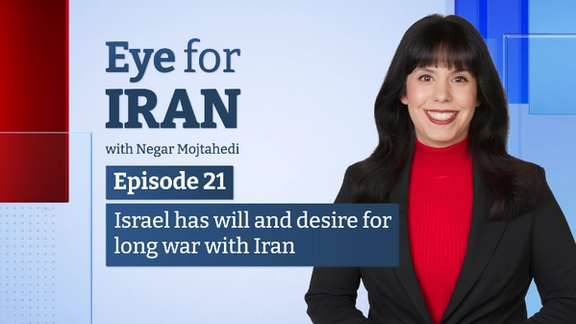
Israel views Iran as an existential threat post Oct 7 and has the will and desire for a long war with the Islamic Republic, one that could have devastating consequences for civilians on both sides, a military expert told Iran International.
Speaking on the Eye for Iran podcast, Afshon Ostovar, an associate professor of national security affairs at the Naval Postgraduate School and author of Wars of Ambition, said Iran pushed Israel to feel an existential threat. The interview was recorded before Israel's October 26 attack on Iran's missile sites.
"Israel sees this war post October 7th as an existential conflict. If you take Iran's leaders at their word, then this is exactly what they wanted," said Ostovar.
Ostovar emphasized that the Iranian government and IRGC must now confront the reality of provoking Israel, especially after Oct 7.
That perception of Iran by Israel will likely shape how the war is carried out, and it’s not going to be a one-time strike, but likely a long conflict carried out in stages.
Iran International first broke the story of a senior Israeli insider who gave a hint that Israel’s strike on Iran would signal ‘start of long war’.
“This attack is just the beginning of a long war between Israel and Iran,” said Brigadier General (res.) Amir Avivi. “There will be a big attack, but one of many."
Avivi, a close friend and Caesarea neighbor of Prime Minister Benjamin Netanyahu, is regularly consulted by key government ministers.
He had warned that Israel’s endgame was to prevent Iran from becoming a nuclear power.
Ostovar said that as the war drags on, the risk of targeting nuclear facilities increases, potentially leading to radiation fallout. That could have long-term impacts for civilians.
"When you attack nuclear facilities, there's spillage, radiation escapes. You have a huge humanitarian crisis potentially on hand."
For decades Iran and Israel have engaged in a shadow war through proxies, sophisticated cyber-attacks, covert operations and exchanging threating war of words. Since its inception in 1979, the Islamic Republic of Iran has said it would ‘wipe Israel off the wipe’. That is now seemingly starting to become a reality and if you take Iranian leaders by their word, then this is what they wanted and now they must face the consequences, said Ostovar.
Israel has covertly targeted military and nuclear facilities in Iran, killed scientists and commanders through alleged Mossad operations, but the reality of a direct and long-term war between the two enemies is a growing danger.
What is Iran capable of
But just how much force can Iran conduct? To answer that question, one must first determine what Iran's military capabilities are to understand how the war could be carried out.
Since Iran’s air force is outdated, the only way it could conduct a war against Israel is either through missiles or drones.
Iran has proven that it can penetrate Israel air defense systems, but they have been largely ineffective in terms of the damage that their missiles can inflict.
According to the International Institute for Strategic Studies ’annual assessment in 2023, the Iranian Armed forces are among the largest in the Middle East. At least 580,000 personal and about 200,000 trained reserves divided between the traditional conscripted army and the Islamic Revolutionary Guard Corps (IRGC).
But it would be highly unlikely, said Ostovar, that this conflict would see armed personal getting involved since Iran and Israel don’t share a border, and that leaves missiles and drones as the only feasible means for war.
The accuracy of Iran’s long-vaunted missile program has been called into question. A recent report by experts shared exclusively with The Associated Press suggested one of the advanced missiles Tehran would use in any future attack against Israel is far less accurate than previously thought.
Analysts at the James Martin Center for Nonproliferation Studies examined the Iranian strike on the Nevatim Air Base 65 kilometers (40 miles) south of Jerusalem in the Negev Desert. They believe Iran used its Emad missile, and assuming the target was the Israeli F-35I fighter jet hangars, the James Martin analysts measured the distance between the hangars and the impact zones of the missiles. The study concluded an accuracy range of 1.2 kilometers, which is far less than what Iran claims.
Despite that, Ostovar said it can still have devastating impacts for Israeli citizens.
In Iran’s Oct 1 attack on Isarel, 181 ballistic missiles were fired, and 30 of them got through Israel’s air defense system.
If those missiles were to target civilians' populations instead of a military base in the middle of the desert, then those 30 missiles could cause real harm and damage to people, said Otsovar.
Farzin Nadimi, a Senior Fellow at the Washington Institute, specializing in the security and defense affairs of Iran and the greater region, spoke in a previous episode of Eye for Iran . Nadmi said Iran’s missiles have had failures of launching and crashing before their intended target, but other times it can be successful and deadly.
While Hamas has been decimated and Hezbollah has been severely weakened, Ostovar points to a recent missile attack launched by Hezbollah at Israeli’s Prime Ministers seaside home that proves Iran’s proxies can still do damage.
According to Ostovar, Iran has one of the largest arsenals of ballistic missiles and drones in the Middle East including cruise missiles and anti-ship missiles, in addition to ballistic missiles with ranges up to 2,000 kilometers.
Tehran also has a large inventory of drones with ranges of around 1,200 to 1,550 miles, some of which are reportedly being used by Russia in Ukraine.
Israel is advanced in every aspect of its military compared to Iran, from its aircraft to its missiles, radar, to its anti-air defense system, said Ostovar.
The author and national security expert told Iran International Israel officials won't stop at just one strike, and Iranian officials will fire back, and as the war expands the potential for hurting people on both sides also increase.
“That's my worry is that this war expands to civilian targets because once that happens then people on both sides are going to suffer greatly."
To find out more and see why Ostovar believes neither side can actually win this conflict and how allies and the region would react, watch the full episode on YouTube or listen on Spotify, Castbox, Apple or Amazon.
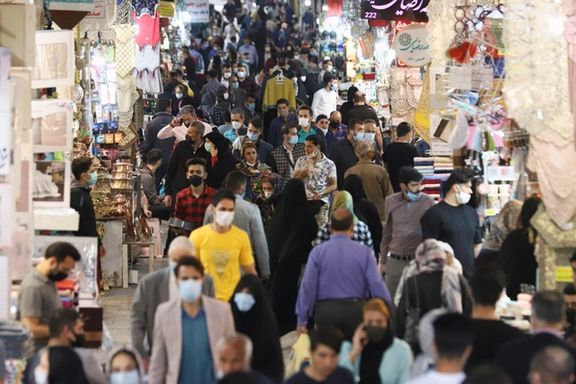
A new public opinion poll suggests conflicted Iranian attitudes toward foreign policy, with a majority blaming it for domestic economic woes but approving of the country’s military role in the Middle East.
The survey was conducted by polling firm Stasis in association with Washington DC-based thinktank the Middle East Institute in late September and early October, and included 1,189 Iranians aged 18 and older.
The results show Iranians are critical of certain aspects of foreign policy yet resolute on others, particularly around Tehran's military influence in the region.
78 percent of respondents said they believed Iran’s foreign policy was harming their livelihood yet 60 percent said they favor providing military support to allied armed groups across the Middle East.
On the diplomatic front, around two in three respondents favored establishing relations with the United States but most opposed normalization with Israel. Only around a quarter said they completely or somewhat agree with the statement that “Iran should normalize its relationship with Israel.”
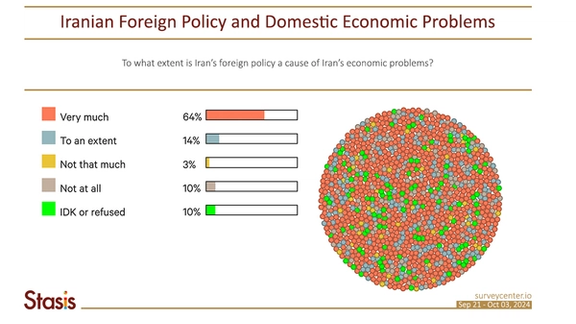
“The extraordinary circumstances surrounding the survey period—with Iran and Israel teetering on the brink of war—likely heightened patriotic or emotional responses, particularly toward Iran’s military activities in the region,” said Alex Vatanka, Director of the Iran Program at the Middle East Institute.
He added that this urgency could help explain the significant support for maintaining a military presence in the Middle East and backing allied groups, despite widespread discontent over the cost.
Around half of those who took part in the survey approved of Iran’s presence in Syria.
Vatanka said this could point to possible gaps in public understanding of foreign policy and its scope. “Some respondents may have failed to see that the Islamic Republic’s regional military engagements are central to its foreign policy. They appear to have overlooked the connection between Iranian activities in the region and the isolation that has left the economy in ruins”.
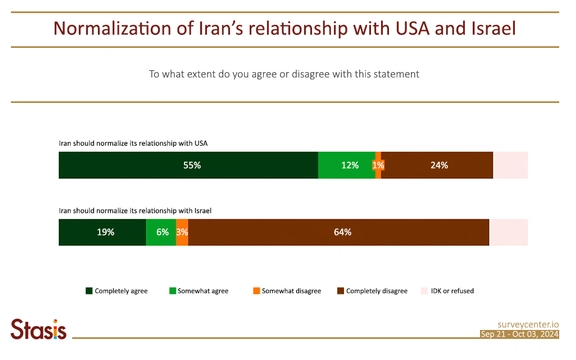
The poll captured Iranian sentiment during a period marked by geopolitical tension, including the assassination of Hezbollah leader Hassan Nasrallah by an Israeli air strike last month and Iran’s retaliatory attack against Israel on Oct. 1.
A majority of those who took part in the survey (59 percent) felt Iran was in a stronger position following these developments. Even more (69 percent) said they felt safer as a result of the country’s military involvement in the Middle East, including its backing of regional armed groups.
Iranians were nearly evenly divided over the country’s alignment with global powers. 34 percent expressed a preference for strengthening ties with Russia and China, and an equal 34 percent preferred Western partnerships, including with the United States and Great Britain. Sixteen percent chose both, and another 16 percent were undecided.
Gauging the public mood in Iran is challenging, especially on issues of national security. Dozens are tried and jailed every year for expressing views on issues that the government deems sensitive.
“Rapid changes in the political environment of the region could potentially affect public opinion regarding some survey questions, especially those directly related to Iran’s foreign affairs,” Statis, the polling firm, wrote in its report.
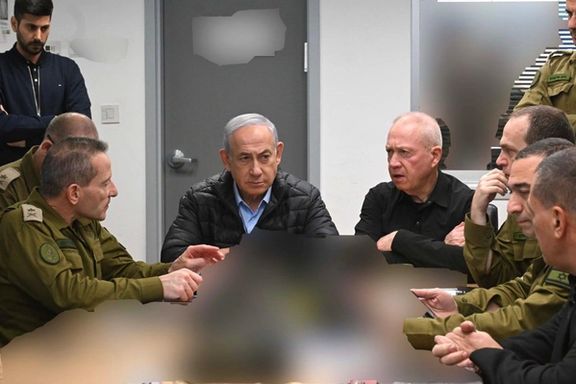
Israeli jets completed air strikes on military and missile sites in Iran in the early morning hours of Saturday which it described as retaliation for an October 1 Iranian ballistic missile attack on Israel.
The move appeared calibrated to avoid pushing the Mideast closer to all-out war between two of its strongest military powers, with no casualties immediately reported.
Combat pitting the Jewish state against Iran-backed Lebanese Hezbollah and Palestinian Hamas has ratcheted up in recent weeks, bringing Iran and Israel into more direct confrontation.
Multiple explosions were heard in and around Tehran at around 2:15 am local time and several hours later again in the capital and in two southwestern cities.
The Israeli military said "The retaliatory strike has been completed and the mission was fulfilled," adding that "aircraft struck missile manufacturing facilities used to produce the missiles that Iran fired at the State of Israel over the last year."
Targets also included surface-to-air missile and anti-aircraft capabilities, the military added.
“Iran reserves the right to respond to all attacks and there’s no doubt that Israel will get a proportionate response to any action” IRGC-affiliated Tasnim news agency quoted an informed source as saying.
They added that "initial assessment shows the Zionist regime’s actions were weak.”
The United States, Israel's main political and military backer, described the attack on their mutual archenemy in the region as self-defense.
"We understand that Israel is conducting targeted strikes against military targets in Iran as an exercise of self-defense and in response to Iran’s ballistic missile attack against Israel", US National Security Council spokesman Sean Savett said in a statement.
Jonathan Harounoff, International Spokesperson for Israel at the United Nations told Iran International Israel had to respond to Iran's missile barrage.
"Israel has a right and a duty to defend itself from a regime that has continued to attack Israel relentlessly over the past year, directly and through its terror proxies," he said.
Iran's Oct. 1 ballistic missile fusillade against Israel came in response to Israel's likely assassination of Hamas leader Ismail Haniyeh in Tehran in July and killing of Hezbollah chief Hassan Nasrallah last month.
It was the second direct attack by the Islamic Republic on Israel this year after an earlier salvo in April which also caused minimal damage or casualties and was repelled with US help.
Israel's strike on Iran unfolded in three stages, Israel's public broadcaster said.
Blasts were also heard in the southwestern cities of Ahvaz and Abadan in Khuzestan province, residents told Iran International.
Mizan News agency in Iran reported sounds of renewed explosions in central Tehran.
Strikes hit Parchin, a large area of military factories for missiles and drones, according to Beni Sabti, an expert on Iran from the Israeli National Security and Strategy Institute (INSS).
Sabti used to serve as a Persian spokesperson for the Israeli government on Iranian issues and is in frequent contact with senior Israeli officials.
The Israeli military announced the completion of its retaliatory strikes against Iran around 6am local time, saying they damaged Iran's military infrastructure - including air defense systems and ballistic missiles capabilities.
Israeli military officials told reporters in a briefing that dozens of fighter jets participated in the attack and have all returned to their bases safely.
The operation was code named "Days of Repentance," and marks the first time Israel took responsibility for an attack in Iran.